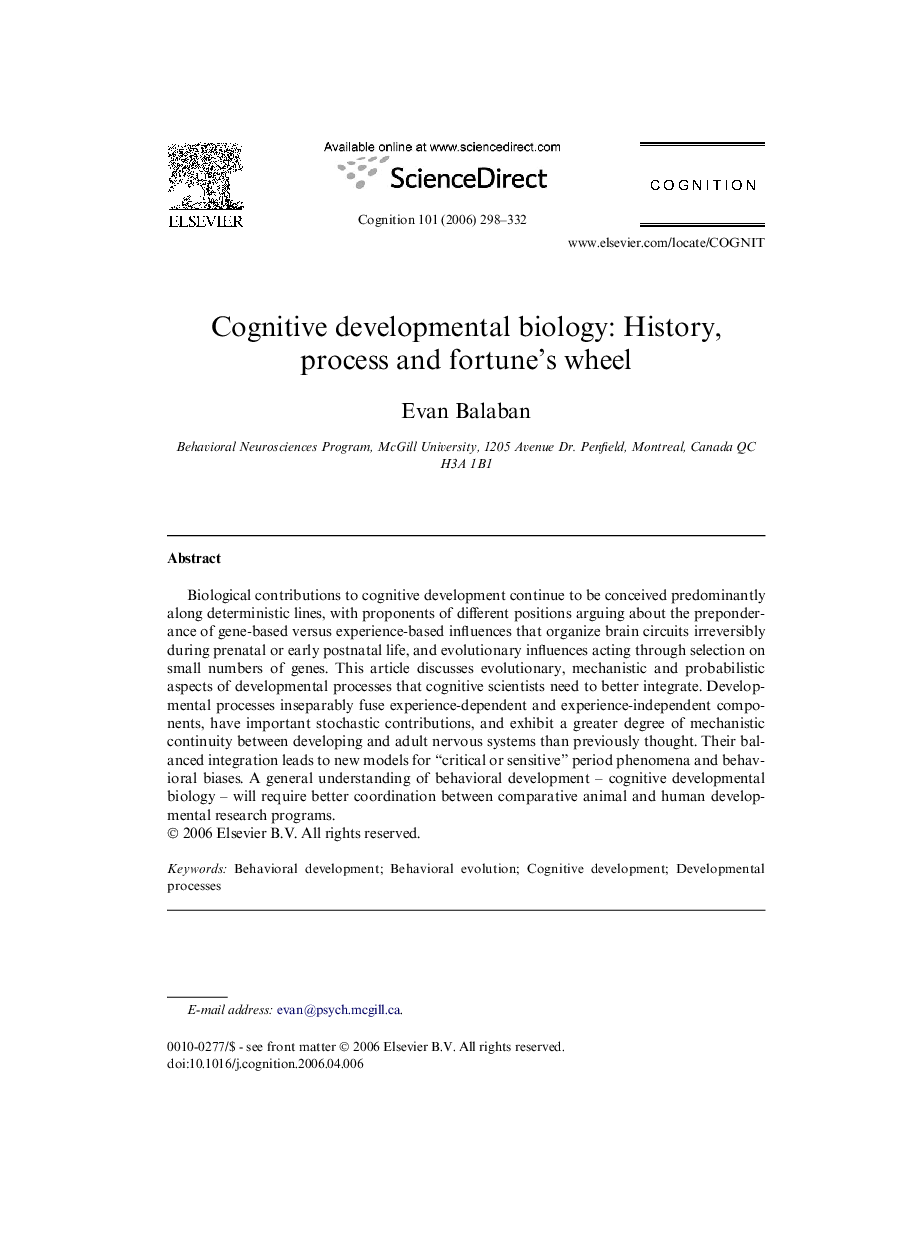| Article ID | Journal | Published Year | Pages | File Type |
|---|---|---|---|---|
| 926852 | Cognition | 2006 | 35 Pages |
Biological contributions to cognitive development continue to be conceived predominantly along deterministic lines, with proponents of different positions arguing about the preponderance of gene-based versus experience-based influences that organize brain circuits irreversibly during prenatal or early postnatal life, and evolutionary influences acting through selection on small numbers of genes. This article discusses evolutionary, mechanistic and probabilistic aspects of developmental processes that cognitive scientists need to better integrate. Developmental processes inseparably fuse experience-dependent and experience-independent components, have important stochastic contributions, and exhibit a greater degree of mechanistic continuity between developing and adult nervous systems than previously thought. Their balanced integration leads to new models for “critical or sensitive” period phenomena and behavioral biases. A general understanding of behavioral development – cognitive developmental biology – will require better coordination between comparative animal and human developmental research programs.
